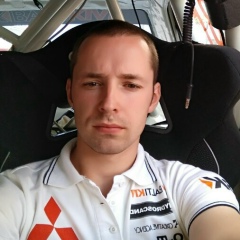Почти у каждого из нас есть замороженная часть, ослабленная или травмированная, отделенная. Когда-то давно непереносимый для ребенка опыт был заморожен. Но он должен быть завершен, и мы, уже взрослыми, бессознательно находим себе ситуации или людей, рядом с которыми та наша часть оттаивает и начинает болеть. Иногда эта боль кажется настолько же непереносимой, как тогда - в детстве. Хотя сейчас, во взрослом возрасте, здесь, сейчас, нет, казалось бы, никакой объективной причины для такой сильной боли или, как минимум, гораздо больше ресурсов для того, чтобы с ней справиться. Но болит сильно, потому что наконец стало слышно то, что было заглушено "там и тогда".
И эта часть просит нашего внимания, принятия, опоры, любви. Всех тех ресурсов, которых не нашлось в тот непереносимый момент.
И мы, как правило, путаем эти поиски внутреннего взрослого и внутренней опоры, с поисками взрослого внешнего и опоры внешней. И начинаем и то и другое искать снаружи. Повторю. Вместо того, чтобы вырастить изнутри этого заботливого и принимающего, любящего взрослого - маму внутри себя - мы начинаем искать ее вне себя. И разумеется - не находим. Потому что нет никого, кому под силу было бы стать мамой взрослому человеку. Кроме мамы. И кроме нас самих.
Иногда - на время - функцию внешней опоры может взять на себя терапевт, чтобы у клиента наконец появился опыт того, что такое принятие, что такое - возможность прожить все свои чувства в их полноте, возможность выражать себя и не быть отвергнутым, возможность рассчитывать на поддержку, на то, что другой - будет на твоей стороне, не осудит, не станет ругать, будет рядом, выдержит, проявит внимание, бережность, даст все то, в чем так долго нуждалась эта отчужденная, потерянная когда-то часть. И тогда - она обретёт силу и сможет вернуться в целое. А дальше - собирать себя из частей, становиться цельным, человек, прошедший терапию, постепенно научится сам. В этом - ее радость и ее чудо.
И эта часть просит нашего внимания, принятия, опоры, любви. Всех тех ресурсов, которых не нашлось в тот непереносимый момент.
И мы, как правило, путаем эти поиски внутреннего взрослого и внутренней опоры, с поисками взрослого внешнего и опоры внешней. И начинаем и то и другое искать снаружи. Повторю. Вместо того, чтобы вырастить изнутри этого заботливого и принимающего, любящего взрослого - маму внутри себя - мы начинаем искать ее вне себя. И разумеется - не находим. Потому что нет никого, кому под силу было бы стать мамой взрослому человеку. Кроме мамы. И кроме нас самих.
Иногда - на время - функцию внешней опоры может взять на себя терапевт, чтобы у клиента наконец появился опыт того, что такое принятие, что такое - возможность прожить все свои чувства в их полноте, возможность выражать себя и не быть отвергнутым, возможность рассчитывать на поддержку, на то, что другой - будет на твоей стороне, не осудит, не станет ругать, будет рядом, выдержит, проявит внимание, бережность, даст все то, в чем так долго нуждалась эта отчужденная, потерянная когда-то часть. И тогда - она обретёт силу и сможет вернуться в целое. А дальше - собирать себя из частей, становиться цельным, человек, прошедший терапию, постепенно научится сам. В этом - ее радость и ее чудо.
Almost each of us has a frozen part, weakened or injured, separated. Once upon a time, an intolerable experience for a child was frozen. But it must be completed, and we, as adults, unconsciously find ourselves situations or people near whom that part of us is thawing and starting to hurt. Sometimes this pain seems as unbearable as it was then in childhood. Although now, in adulthood, here, now, there would seem to be no objective reason for such severe pain or, at least, much more resources to deal with it. But it hurts a lot, because finally it became audible that it was drowned out "there and then."
And this part asks for our attention, acceptance, support, love. All those resources that were not found at that intolerable moment.
And we, as a rule, confuse these searches of the internal adult and internal support, with the searches of the adult external and external support. And we begin to look for both from the outside. I repeat. Instead of growing from the inside this caring and accepting, loving adult - a mother inside herself - we begin to look for her outside of ourselves. And of course - we do not find. Because there is no one who would be able to become a mother to an adult. Except mom. And besides ourselves.
Sometimes - for a while - the therapist can take on the function of external support, so that the client finally has experience of what acceptance is, what is the ability to live all their feelings in their entirety, the ability to express oneself and not be rejected, the ability to count on support , the fact that the other will be on your side, will not condemn, will not scold, will be around, will stand, will show attention, care, will give everything that this alienated, once lost part needed for so long. And then - she will gain strength and will be able to return to the whole. And then - to assemble himself from parts, to become whole, the person who has undergone therapy will gradually learn to do it himself. This is her joy and her miracle.
And this part asks for our attention, acceptance, support, love. All those resources that were not found at that intolerable moment.
And we, as a rule, confuse these searches of the internal adult and internal support, with the searches of the adult external and external support. And we begin to look for both from the outside. I repeat. Instead of growing from the inside this caring and accepting, loving adult - a mother inside herself - we begin to look for her outside of ourselves. And of course - we do not find. Because there is no one who would be able to become a mother to an adult. Except mom. And besides ourselves.
Sometimes - for a while - the therapist can take on the function of external support, so that the client finally has experience of what acceptance is, what is the ability to live all their feelings in their entirety, the ability to express oneself and not be rejected, the ability to count on support , the fact that the other will be on your side, will not condemn, will not scold, will be around, will stand, will show attention, care, will give everything that this alienated, once lost part needed for so long. And then - she will gain strength and will be able to return to the whole. And then - to assemble himself from parts, to become whole, the person who has undergone therapy will gradually learn to do it himself. This is her joy and her miracle.



У записи 35 лайков,
13 репостов,
1798 просмотров.
13 репостов,
1798 просмотров.
Эту запись оставил(а) на своей стене София Завьялова

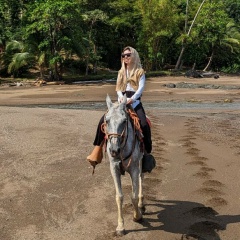

































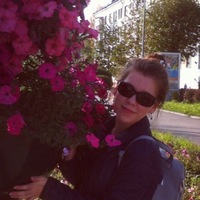





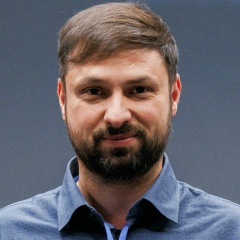





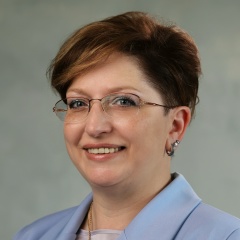

![Стас Однолетков -=[strast]=- Стас Однолетков -=[strast]=-](https://sun9-50.vkuserphoto.ru/s/v1/ig2/BQKIUfD3kthNCNNY9BS69xiPt_GjwVRhAU8D64L6gfeFjcmrTqYrLAC9NKgCppVxwhm79Mi5RypIHhjSHOhQK2uy.jpg?quality=95&crop=347,544,400,400&as=32x32,48x48,72x72,108x108,160x160,240x240,360x360&ava=1&cs=200x200)




